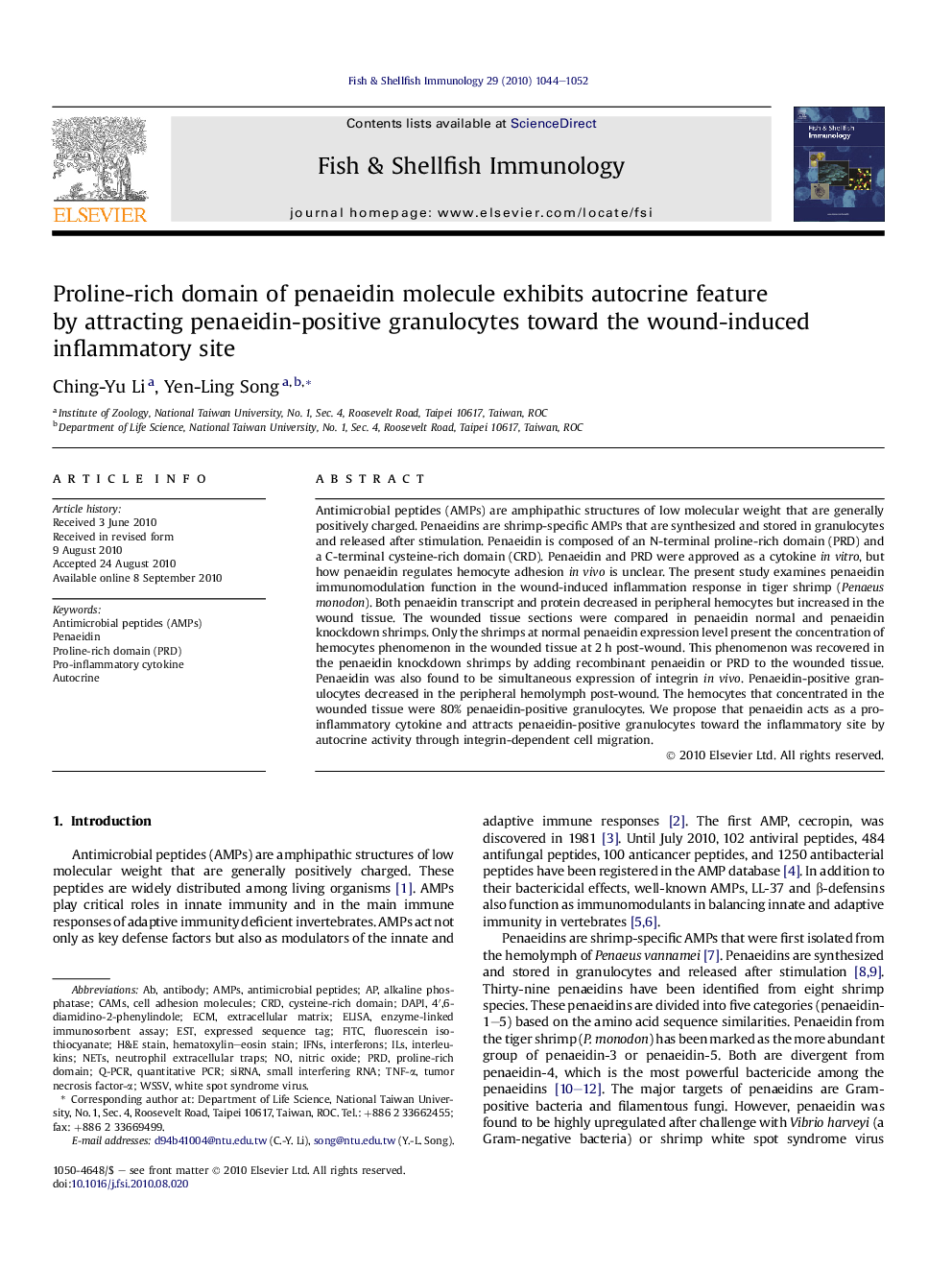| Article ID | Journal | Published Year | Pages | File Type |
|---|---|---|---|---|
| 2432531 | Fish & Shellfish Immunology | 2010 | 9 Pages |
Antimicrobial peptides (AMPs) are amphipathic structures of low molecular weight that are generally positively charged. Penaeidins are shrimp-specific AMPs that are synthesized and stored in granulocytes and released after stimulation. Penaeidin is composed of an N-terminal proline-rich domain (PRD) and a C-terminal cysteine-rich domain (CRD). Penaeidin and PRD were approved as a cytokine in vitro, but how penaeidin regulates hemocyte adhesion in vivo is unclear. The present study examines penaeidin immunomodulation function in the wound-induced inflammation response in tiger shrimp (Penaeus monodon). Both penaeidin transcript and protein decreased in peripheral hemocytes but increased in the wound tissue. The wounded tissue sections were compared in penaeidin normal and penaeidin knockdown shrimps. Only the shrimps at normal penaeidin expression level present the concentration of hemocytes phenomenon in the wounded tissue at 2 h post-wound. This phenomenon was recovered in the penaeidin knockdown shrimps by adding recombinant penaeidin or PRD to the wounded tissue. Penaeidin was also found to be simultaneous expression of integrin in vivo. Penaeidin-positive granulocytes decreased in the peripheral hemolymph post-wound. The hemocytes that concentrated in the wounded tissue were 80% penaeidin-positive granulocytes. We propose that penaeidin acts as a pro-inflammatory cytokine and attracts penaeidin-positive granulocytes toward the inflammatory site by autocrine activity through integrin-dependent cell migration.
